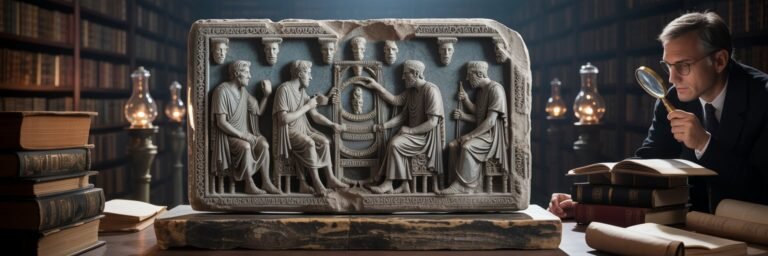INTRODUCTION
History is ingrained with numerous conspiracies. Whether rooted in political intrigue, religious conflict, or military deception, these schemes have left a profound legacy in modern society. They have influenced how we perceive history and added a layer of intrigue and suspense to our understanding of past events. In this journey through history, we will be unpacking the fascination surrounding historical conspiracies and their enduring impact on the cultural, psychological, and sociological perspectives of modern society.
HISTORICAL BACKGROUND
Conspiracies, as a factor in human affairs, can be traced back to the dawn of civilization. In ancient Roman times, one of the earliest conspiracies, the Catiline Conspiracy in 63 BC, saw the senator Lucius Sergius Catilina plotted to overthrow the republic. This archaic episode helped shape the politics of Rome, setting precedents for political treacheries in subsequent empires.
The Middle Ages were rife with religious and royal intrigues that constituted the bulk of historical conspiracies. The Knights Templar, a medieval Catholic military order, were suppressed in 1307 under charges of heresy, a conspiracy orchestrated by King Philip IV of France desiring their wealth. The events surrounding their downfall and dissolution fueled centuries of speculation and theories, seeping into popular culture, influencing literature, and igniting modern-day treasure hunts.
THEORIES AND INTERPRETATIONS
Historical conspiracies have ever been subject to myriad interpretations. For instance, the theory that Queen Elizabeth I of England, who reigned from 1558 until 1603, was a man, known as “The Bisley Boy” theory, suggests that the original young princess died and was replaced by a boy to prevent political chaos. While most historians dismiss this as a folk tale, it demonstrates the fascination such theories tend to generate.
Theories also surround the demise of the Knights Templar. Some believe they escaped and founded the Freemasons, while others theorize that they guard the Holy Grail or the Ark of the Covenant. These interpretations have fascinated generations and have led to their romanticized depiction in contemporary culture, from Dan Brown’s “The Da Vinci Code” to the “Assassin’s Creed” video game series.
MYSTERIES AND CONTROVERSIES
Mystery and controversy are inherent to the concept of conspiracy. A notable instance is the infamous assassination of US President John F. Kennedy in 1963. The official interpretation — that Lee Harvey Oswald acted alone — has been contested by conspiracy theorists who allege involvement from the Mafia, the military-industrial complex, or even Vice President Lyndon B. Johnson. This mystery continues to incite heated debates, stimulating a plethora of books, movies, and documentaries attempting to decipher the truth.
Similarly, the 19th-century Jack the Ripper case, involving a series of gruesome murders in the district of Whitechapel in London, is shrouded in controversy. Many theories present a wide range of suspects, including Prince Albert Victor and Walter Sickert. These unresolved cases demonstrate the power of conspiracies to invigorate public imagination and discourse timelessly.
SYMBOLISM AND CULTURAL SIGNIFICANCE
The symbolism and cultural significance of historical conspiracies are fundamental to their legacy. For instance, the Templars embody the mystery, chivalry, and religious conflict of the Middle Ages. They serve as symbols of pursuit of hidden knowledge and lost treasure, leading secret societies and thrill-seekers alike to adopt their imagery and lore.
In the wake of the JFK assassination, the symbolism of government secrecy and shadowy influence has become pervasive. Many interpret the alleged cover-up as proof of a ‘Deep State’ — an entrenched, hidden bureaucracy manipulating events behind the scenes, a trait apparent in spy and political thrillers. It has colored the relationship between the public and government institutions, provoking skepticism and fear of ulterior motives.
MODERN INVESTIGATIONS
Present times have witnessed a surge in investigating historical conspiracies due to advancements in technology, forensics, and socio-political awareness. Internet sleuths and professional historians alike continuously examine cases like the JFK assassination through diverse lenses.
Notably, in recent years, explorations around Oak Island in Canada, allegedly the hiding place of Templar treasures, have garnered significant attention. Whether through TV shows like History Channel’s “The Curse of Oak Island” or efforts by intensive archaeological teams, these focused investigations exemplify our society’s obsession with unearthing hidden truths, no matter how ancient or obscure.
LEGACY AND CONCLUSION
The legacy of historical conspiracies impacts various aspects of modern society. As discussed, they influence literature, films, games, and popular culture. Simultaneously, they shape public perception of authority and instigate an innate curiosity and skepticism, driving us to question and scrutinize.
Historical conspiracies also impact academia. They spawn new research disciplines, propelling historical investigation and fostering valuable dialogue. These theories often serve as alternate interpretations that challenge mainstream narratives, fostering critical thinking and intellectual exploration.
Conclusively, the legacy of historical conspiracies is as enduring as it is fascinating. While not all theories hold water under scrutiny, their existence is crucial in understanding historical events and their impact on the human psyche. They serve as a testament to our inherent fascination with the unknown and our unwavering desire to uncover the truth, shaping our collective cultural identity in the process.





